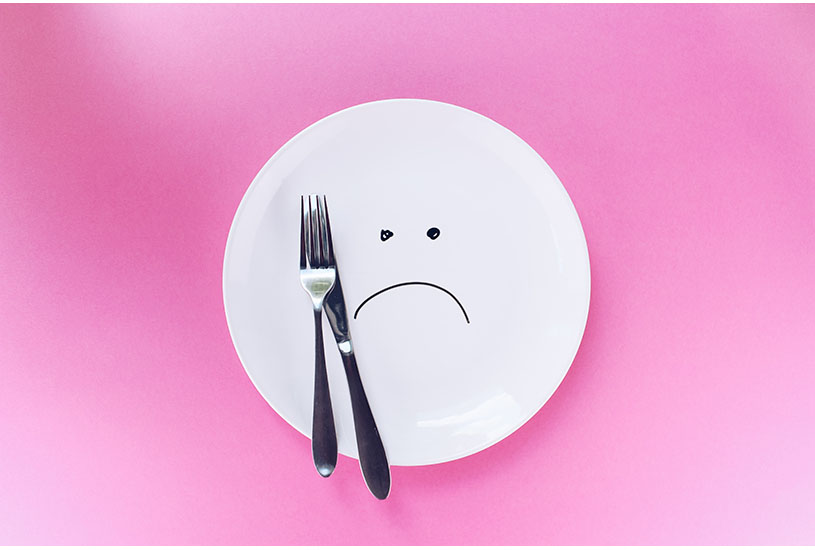A healthy diet is one that is diverse, not extreme.
It’s well-known that eating a healthy, balanced diet can keep our bodies and minds in good shape. But with less than five percent of adults following the Australian Dietary Guidelines, that might be easier said than done.
Instead, it’s tempting to turn to specific diets that claim to help us lose weight or consume more nutritional foods.
On the surface, these diets might be switching up our meal plans or seen to promote healthy eating behaviours. But in the long-term, they could be working against our favour.
Losing weight – but at what cost?
Restrictive diets revolve around a series of rules. They’re concerned with how much of a given food – or, more specifically, the calories within that food – you are allowed to consume on a given day.
These diets are commonly used to help people lose weight, and the appeal is that it does so quickly.
Because of this, the diets don’t necessarily prioritise healthy eating patterns, like ensuring we get our daily servings of fruit and vegetables.
They’re more concerned with minimising the amount of energy consumed each day, which is what causes the weight to reduce so rapidly.
For instance, intermittent fasting diets require people to significantly reduce their required energy intake on designated fasting days. The common ratio for this is 5:2 – two days of fasting, five days of regular eating.
The problem is, most people don’t get an increase in appetite after the fasting days, which would allow them to compensate for all the energy they didn’t consume but need in order to function well.
In fact, it can even reduce their appetites to match the energy consumed on a fasting day.
Those on a restrictive diet could continue to fast for the rest of the week. In the long run, this can lead to side effects, such as headaches, constipation, and liver inflammation.
An ultimately unsustainable practice
Mariel Messer, from Deakin University’s School of Psychology, says lack of motivation is a significant factor that causes these diets to fail – and is often brought on by these side-effects.
“People think that, if they are motivated enough, they can adhere to a restricted diet. This is not true, because the vast majority of the population cannot sustain a restrictive diet for long periods of time.”
Some people might approach a diet thinking that, even if it does result in hunger pains or headaches, that they’ll simply muddle through until they’ve achieved their desired weight.
But these symptoms are red flags, the body signalling that something isn’t right.
The practice of restrictive dieting can also negatively affect other areas of our health. Ms Messer says that restrictive diets are associated with cognitive impairments, social difficulties, and other psychological problems.
When you’re dramatically limiting the foods you can consume, it can be tricky to meet up with friends over a meal.
“Individuals often withdraw from other domains – sport, work, friendships – which then leads to further physical and mental health problems later on.”
Ms Messer says that, while fasting diets might allow us to lose weight quickly, they are an unhealthy practice overall.
“The healthiest diets are those that allow for a wide variety of food types that accommodate the physical, psychological, and social needs of a person.”
De-emphasising societal pressures
For some of us, our self-worth has long been connected to our weight and other aspects of our appearance.
And it’s important to interrogate this feeling and ask ourselves: why do we feel this way?
Are we seeking to conform to standards that are imposed upon us, regardless of whether or not they make us happy?
Or, are we seeking to lead a healthier life – which can include a balanced, diverse diet and regular exercise – as a way to keep our bodies and minds in good shape?

Ms Messer acknowledges that there is an increasing pressure from the external world to look a certain way, and that these pressures can be exacerbated by certain personality traits – such as perfectionism, impulsivity, and low self-esteem.
Wherever we sit when it comes to self-image, the most important thing is that we feel comfortable and happy in our own bodies.
With that in mind, Ms Messer recommends that we consume a wide variety of different types of food, from across the Food Pyramid.
“Ensure there is no exclusion of whole food groups that you enjoy eating – even in moderation – and that you eat regularly throughout the day.
“It’s also important to immerse yourself in a range of hobbies to de-emphasise the importance you place on body image, as well as to invest time in emotion-regulation strategies such as mindfulness and problem solving exercises.”
Mariel Messer is a lecturer from Deakin University’s School of Psychology



